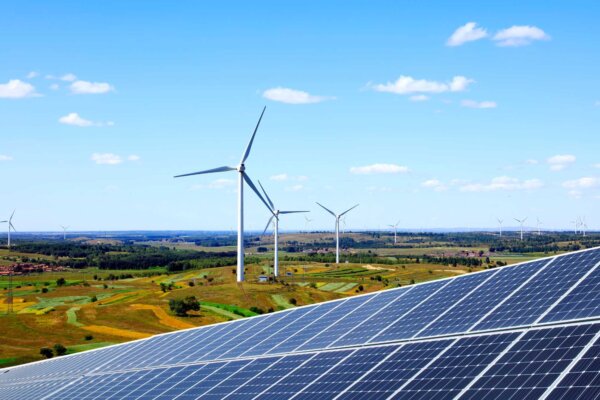An additional £10 million of funding for net zero policy support indicates that this remains a key objective for the Government, with infrastructure and accessibility as the key targets. With strategies for improving energy, heat and transport and an emphasis on innovation and digital connection, it seems likely that businesses will be encouraged to be more future-focused and data-driven in their sustainability journeys.
Energy
To enable the decarbonisation of energy, the Government has committed to doubling the Energy Innovation Programme and investing £900 million in new technology, including fusion and electric vehicles. With Carbon Price support frozen to encourage decarbonisation within the energy industry, there is also a commitment to prevent the potential intermittency caused by increased renewables through further development of nuclear, hydrogen and carbon capture and storage (CCS). The new CCS Infrastructure Fund indicates that, at least initially, CCS might be expected to be key amongst these.
Both business and domestic supply are being incentivised towards more sustainable choices. The Climate Change Levy is to be raised on gas whilst being frozen on electricity, and the Climate Change Agreement scheme is to be extended by 2 years, supporting large energy users in their sustainability efforts. In addition, the Green Gas Levy aims to encourage more biomethane on the grid.
Heat
Strategies regarding heat focus primarily on domestic and small businesses, with schemes to help invest in heat pumps and biomass boilers. However, the Non-Domestic Renewable Heat Initiative received some support, aiming to protect larger projects.
Public transport
Decarbonisation of transport is also tackled, as the Budget outlines several ways local transport connections are to be improved whilst achieving net zero. Continued investment in the Midlands Rail Hub, as well as the allocation of funds from the Transforming Cities Funds, aims to see new and redeveloped cycle freeways, bus routes and metro systems across the country. With £50 million dedicated to improving accessibility at railway stations, increased travel via public transport seems to be important in reducing emissions.
Electric vehicles
Alongside a boost to public transport, the Budget aims to incentivise low emission vehicles, making them more accessible. With the ultimate aim of a fast-charging station within 30 minutes of every UK driver, the Office for Low Emissions Vehicles will be undertaking a review and development of current infrastructure. To encourage the uptake of these opportunities, the Rapid Charging Fund will offer financial support to businesses, whilst Plug-in Grants are being extended for vans, taxis and motorcycles to 2023. Altogether, this aims to make electric vehicles a more accessible and reliable option and therefore encourage their uptake.
Climate change and sustainability have clearly been recognised within the 2020 Budget and have remained important despite other current challenges. With sustainable development apparently likely to continue, and clear links between net zero, innovation and growth, there is huge potential for businesses willing to take advantage of the opportunities that will appear over the next few years.
To find out more about how Bryt Energy can support your sustainability journey, get in touch with our friendly team at heretohelp@brytenergy.co.uk or on 0330 053 8620.
You can read the 2020 Budget in full, here.


